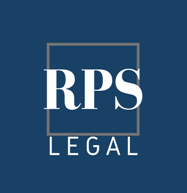The Dutch law does not expressly recognize the use of a nominee, as this would take place in an offshore jurisdiction, for example. However, in practice, foreign and local entrepreneurs can choose to be represented by a third party, usually an attorney, such as one of the experts at our Dutch law firm.
The nominee directors in Netherlands represent the company owners on general and local levels, in accordance with the Dutch law.
The appointment of the nominee may not be formally recognized in the Netherlands when opening a company, however, owners may appoint their representative who will act in their name, and will be included in certain company documents as well as have the power to sign company-related documents, make certain decisions on behalf of the beneficial owner, as well as handle certain banking matters.
Table of Contents
Who can be appointed as the nominee director?
The requirements and regulations for appointing a nominee director in Netherlands are almost the same as appointing an executive director.
There are no strict rules about who can become a nominee director of a company. However, the company’s Articles of Association might have specific requirements for nominee directors and who can suggest people for this position.
Nominee directors in Netherlands don’t need be of a particular nationality unless the Articles of Association specify otherwise. If the articles do mention a nationality requirement, it can’t discriminate against citizens of other European Union (EU) countries.
Nominee directors can be appointed for various legal entity structures, such as NV (Naamloze Vennootschap).
Since January 1, 2016, Dutch law prevents people who have been dishonest or fraudulent directors of a bankrupt company from becoming directors or nominee directors of other companies. This particular case is complex and we recommend reaching out to our attorneys in Netherlands for assistance.
When is the nominee director appointed?
Foreign nationals who open a company in the Netherlands can choose to appoint a nominee director right away, as soon as they draft the company’s constitutive documents, or after the business is registered and has started trading, as soon as they determine that they need this service.
After incorporation, the nominee directors is given a general mandate – General Power of Attorney for establishing all rights: opening the account, signing contracts, full management of the company. The empowerment is made before a notary public and carries an Apostille to be available anywhere in the world.
What are the powers of the nominee director?
Essentially, the power of attorney is the document that indicates the extent of the nominee’s powers concerning company matters. The power of attorney can allow the appointed third party to be involved in all company decisions, banking issues as well as the management of the day-to-day activities, or it can restrict his power so that he may only be involved as needed in special cases (such as signing an agreement when the beneficial owner cannot be present in the country).
The nominee’s involvement in the company is decided by the beneficial owner and he will be bound by the power of attorney, and a fiduciary duty, to act within these limits.
What are the duties and liabilities of a company director in the Netherlands?
The company director has a set of duties and some of these will extend to the nominee, as indicated in the documents that appoint him and provide him with a certain degree of decision-making powers. The following are relevant:
- Actions for the company: according to law, the company director must act in the best interest of the company;
- Duty of care: the company director has an ethical and legal duty to make the decision concerning the company with due care and in good faith;
- Reporting issues: the director is the one who oversees that abuse and irregularities do not take place, however, he is also the one to report any of these issues when suspected or discovered;
- Administration: the director is the one who is responsible for complying with the annual requirements for filing the relevant accounts; he can also be liable if the company fails to observe the taxation rules, and the deadlines for paying the relevant taxes.
The director can be liable internally, as well as externally. Our Dutch lawyers briefly describe the director’s liabilities below.
The director is liable towards the company’s creditors, and other third parties such as the Dutch tax authorities, as previously mentioned. In some cases, depending on the effects of the director’s acts, liability can also be based on omission. As far as the internal liability is concerned, the director is liable for insufficient or improper company performance and can be liable for gross negligence in some cases. While the company director is not directly liable for the business failure in all cases, in case of bankruptcy he can be found guilty if this is due to a proven case of negligence.
Why should you appoint a nominee director in Netherlands?
Appointing a nominee director in Netherlands can be used for both strategic and legal reasons.
It can offer a shield of confidentiality, enabling companies to preserve the anonymity of their actual owners, which can be crucial for competition and privacy.
By having a nominee director in the Netherlands, the company can follow rules that state the director must live in the country. A local nominee director can also help manage businesses and navigate the new market’s rules and customs. You can consult with our law firm in Netherlands to find the best candidate for this position.
A nominee director can help make the separation between ownership and management clearer. This is especially helpful when the ownership setup is complicated or involves different people or entities. The nominee director acts as a bridge, making sure the company works more smoothly.
Our team of lawyers can give you more details and can help you with legal representation if needed.
Differences between nominee directors and nominee shareholders
Nominee directors and nominee shareholders refer to different roles and aspects within a company’s structure.
Nominee directors in Netherlands are appointed to the board of directors of a company, often for administrative, legal, or strategic reasons. His/her primary responsibility is to represent the company officially, attend board meetings, and fulfill legal requirements. Nominee directors are commonly used to maintain privacy, comply with residency requirements, or separate ownership from management.
A nominee shareholder is an individual or entity that holds shares in a company on behalf of the true or beneficial owner. This arrangement is often used to maintain the privacy of the actual shareholders. The true owner of the shares remains confidential. Nominee shareholders are commonly used for confidentiality reasons, especially when individuals or entities do not want their ownership stake to be publicly known. In the context of stock trading, this can mean that the nominee shareholders’ names are on the share register, not the individual investors’. This can help protect investors’ privacy.
Our Dutch law firm can offer more details regarding nominee shareholders.
Differences between a nominee director and an executive director
As we mentioned above, nominee directors in Netherlands are chosen to protect the company’s interests and ensure legal and administrative compliance, without directly participating in the company’s day-to-day operations.
In contrast, executive directors are actively engaged in managing the company’s daily activities and operations. They are also directly engaged in managing and executing various aspects of the business, such as sales, production, finance, and human resources.
While nominee directors don’t work on-site like executive directors, their role is essential, even though their involvement is primarily at a governance and oversight level.
Our lawyers in Netherlands can explain in depth the differences between executive and nominee directors.
Company statistics in the Netherlands
According to the Dutch statistical office, 2020 was a year in which the number of companies in the country increased, despite the COVID-19 pandemic. The data shows the following:
- 68,000 more companies were incorporated in 2020;
- this is a 3.7% increase compared to the previous year;
- most companies are small ones, as by 1 January 2021 the number of companies with only 1 employee was risen to more than 78%;
- in 2020, most of the companies were incorporated in the education sector (8.2%); two other successful business sectors were construction and health.
Local and foreign nationals who are interested in starting a business in the Netherlands can rely on our assistance for appointing a director’s representative. We can help you with trustful nominee services for opening and conducting a business in Netherlands. For further information, please contact our law firm in the Netherlands.

